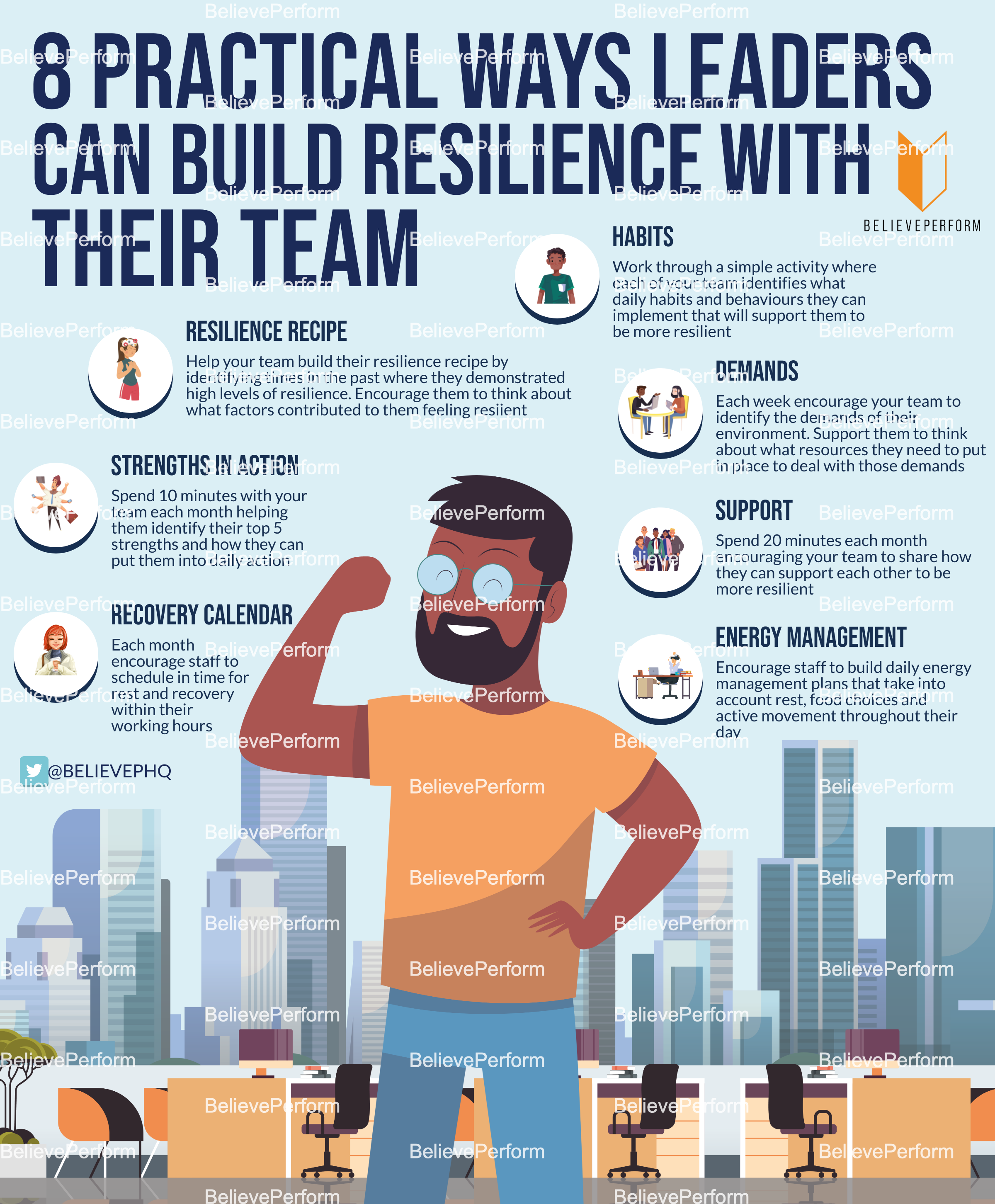Boosting Resilience & Mental Health: A Practical Guide

Table of Contents
Understanding Resilience and its Components
Resilience is the ability to bounce back from adversity, stress, and trauma. It's not about avoiding hardship, but about adapting and thriving in the face of challenges. Strong mental resilience is crucial for overall mental wellbeing, enabling you to cope effectively with setbacks and maintain a positive outlook, even during difficult times. It significantly impacts your ability to manage stress, improve emotional regulation, and achieve your goals.
Key components of resilience include:
- Optimism and a positive outlook: Maintaining a hopeful perspective, even in the face of difficulties, is a cornerstone of resilience. This involves focusing on solutions rather than dwelling on problems.
- Self-efficacy and belief in one's abilities: A strong sense of self-efficacy – the belief in your capacity to succeed – fuels your determination to overcome obstacles. This belief allows you to approach challenges with confidence and perseverance.
- Strong social support network: Having supportive relationships with family, friends, and community members provides a crucial buffer against stress and adversity. These connections offer emotional support, practical assistance, and a sense of belonging.
- Adaptive coping mechanisms: Developing healthy ways to manage stress and difficult emotions is vital for resilience. This includes techniques like deep breathing, mindfulness, and problem-solving.
- Problem-solving skills: The ability to effectively identify and address problems is a key ingredient in building resilience. This involves breaking down challenges into manageable steps and developing effective solutions.
It's important to differentiate resilience from simply "coping." While coping involves managing immediate challenges, resilience goes further; it's about bouncing back better, learning from experiences, and emerging stronger.
Practical Strategies for Building Resilience
Building resilience is a journey, not a destination. By actively engaging in these strategies, you can significantly enhance your ability to navigate life's challenges and improve your overall mental health.
Cultivating a Positive Mindset
A positive mindset is fundamental to building resilience. It involves actively challenging negative thoughts and cultivating a more optimistic outlook.
- Practicing gratitude: Regularly reflecting on things you're grateful for can shift your focus towards the positive aspects of your life. Keep a gratitude journal or simply take a few moments each day to appreciate the good things.
- Focusing on strengths and accomplishments: Acknowledging your strengths and past successes can boost your self-esteem and confidence, increasing your belief in your ability to overcome challenges.
- Challenging negative self-talk and cognitive distortions: Become aware of negative thought patterns and actively challenge their validity. Replace negative self-criticism with self-compassion and positive affirmations.
- Mindfulness and meditation techniques: Mindfulness practices help you stay present and grounded, reducing stress and enhancing your ability to manage difficult emotions.
- Using affirmations and positive self-statements: Repeating positive affirmations can help reprogram your subconscious mind and cultivate a more positive self-image.
Strengthening Social Connections
Strong social connections are a vital source of support and resilience. Nurturing these relationships is crucial for mental wellbeing.
- Importance of supportive relationships: Surrounding yourself with supportive individuals who offer understanding, empathy, and encouragement can significantly impact your ability to cope with stress.
- Nurturing existing relationships: Make an effort to maintain and strengthen existing relationships. Spend quality time with loved ones and communicate openly and honestly.
- Joining social groups or clubs: Joining groups based on your interests provides opportunities to connect with like-minded individuals and build new friendships.
- Seeking professional help when needed: Don't hesitate to reach out to a therapist or counselor if you're struggling. Professional support can provide valuable guidance and support.
- Utilizing online support groups or communities: Online support groups can offer a sense of community and connection, especially if you're facing challenges that make it difficult to connect with people in person.
Developing Healthy Lifestyle Habits
A healthy lifestyle significantly contributes to mental resilience. Prioritizing physical and mental health through these habits is crucial.
- Importance of regular exercise: Physical activity releases endorphins, which have mood-boosting effects. Aim for at least 30 minutes of moderate-intensity exercise most days of the week.
- Benefits of a balanced diet and nutrition: A nutritious diet provides the energy and nutrients your body needs to function optimally, including supporting brain health and mood regulation.
- Prioritizing sufficient sleep: Adequate sleep is essential for both physical and mental health. Aim for 7-9 hours of quality sleep per night.
- Techniques for stress management: Practice stress-reduction techniques like deep breathing exercises, progressive muscle relaxation, or yoga.
- Limiting substance use: Excessive alcohol, drug use, or caffeine consumption can negatively impact mental health and reduce resilience.
Seeking Professional Support for Mental Health
Recognizing when you need professional help is a sign of strength, not weakness. Seeking support doesn't mean you're flawed; it means you're prioritizing your mental wellbeing.
- Recognizing signs of mental health struggles: Be aware of signs of depression, anxiety, burnout, or other mental health conditions. These may include persistent sadness, irritability, changes in sleep or appetite, or difficulty concentrating.
- Understanding different types of mental health professionals: Different professionals offer various types of support. Therapists, counselors, and psychiatrists can provide different forms of treatment.
- Importance of seeking professional help when needed: Don't hesitate to seek professional help if you're struggling. Early intervention can significantly improve outcomes.
- Finding resources for mental health support: Utilize online directories or helplines to find mental health professionals in your area.
- Destigmatizing mental health and encouraging help-seeking behavior: Openly discussing mental health challenges helps to reduce stigma and encourages others to seek help when needed.
Conclusion
Boosting resilience and mental health is an investment in your overall well-being. By incorporating the strategies discussed – cultivating a positive mindset, strengthening social connections, developing healthy lifestyle habits, and seeking professional support when needed – you can significantly enhance your ability to cope with life's challenges and thrive. Remember that building resilience is an ongoing process; be patient with yourself, celebrate your progress, and continue to prioritize your mental and emotional health. By incorporating these strategies into your daily life, you can significantly boost your resilience and mental health, leading to a more fulfilling and empowered life. Start building your resilience today! For further resources and support, visit [link to relevant resources].

Featured Posts
-
 Understanding The Thursday Decline In D Wave Quantum Qbts Stock Price
May 20, 2025
Understanding The Thursday Decline In D Wave Quantum Qbts Stock Price
May 20, 2025 -
 Ai Companies Win Big With Trump Bill Cautious Celebration Ahead
May 20, 2025
Ai Companies Win Big With Trump Bill Cautious Celebration Ahead
May 20, 2025 -
 Is There A Bbc Agatha Christie Deepfake An Investigation
May 20, 2025
Is There A Bbc Agatha Christie Deepfake An Investigation
May 20, 2025 -
 College Town Bust The Economic Consequences Of Shrinking Student Populations
May 20, 2025
College Town Bust The Economic Consequences Of Shrinking Student Populations
May 20, 2025 -
 Analyzing The Lyrics And Themes Of Suki Waterhouses On This Love
May 20, 2025
Analyzing The Lyrics And Themes Of Suki Waterhouses On This Love
May 20, 2025
Latest Posts
-
 United Kingdom Tory Wifes Imprisonment Confirmed For Anti Migrant Outburst
May 21, 2025
United Kingdom Tory Wifes Imprisonment Confirmed For Anti Migrant Outburst
May 21, 2025 -
 Tigers 8 6 Win Over Rockies A Deeper Look
May 21, 2025
Tigers 8 6 Win Over Rockies A Deeper Look
May 21, 2025 -
 Southport Migrant Rant Tory Politicians Wife To Stay In Jail
May 21, 2025
Southport Migrant Rant Tory Politicians Wife To Stay In Jail
May 21, 2025 -
 Delay In Appeal Ex Tory Councillors Wife And The Racial Hate Tweet
May 21, 2025
Delay In Appeal Ex Tory Councillors Wife And The Racial Hate Tweet
May 21, 2025 -
 Update Appeal In Racial Hatred Tweet Case Against Ex Tory Councillors Wife
May 21, 2025
Update Appeal In Racial Hatred Tweet Case Against Ex Tory Councillors Wife
May 21, 2025
